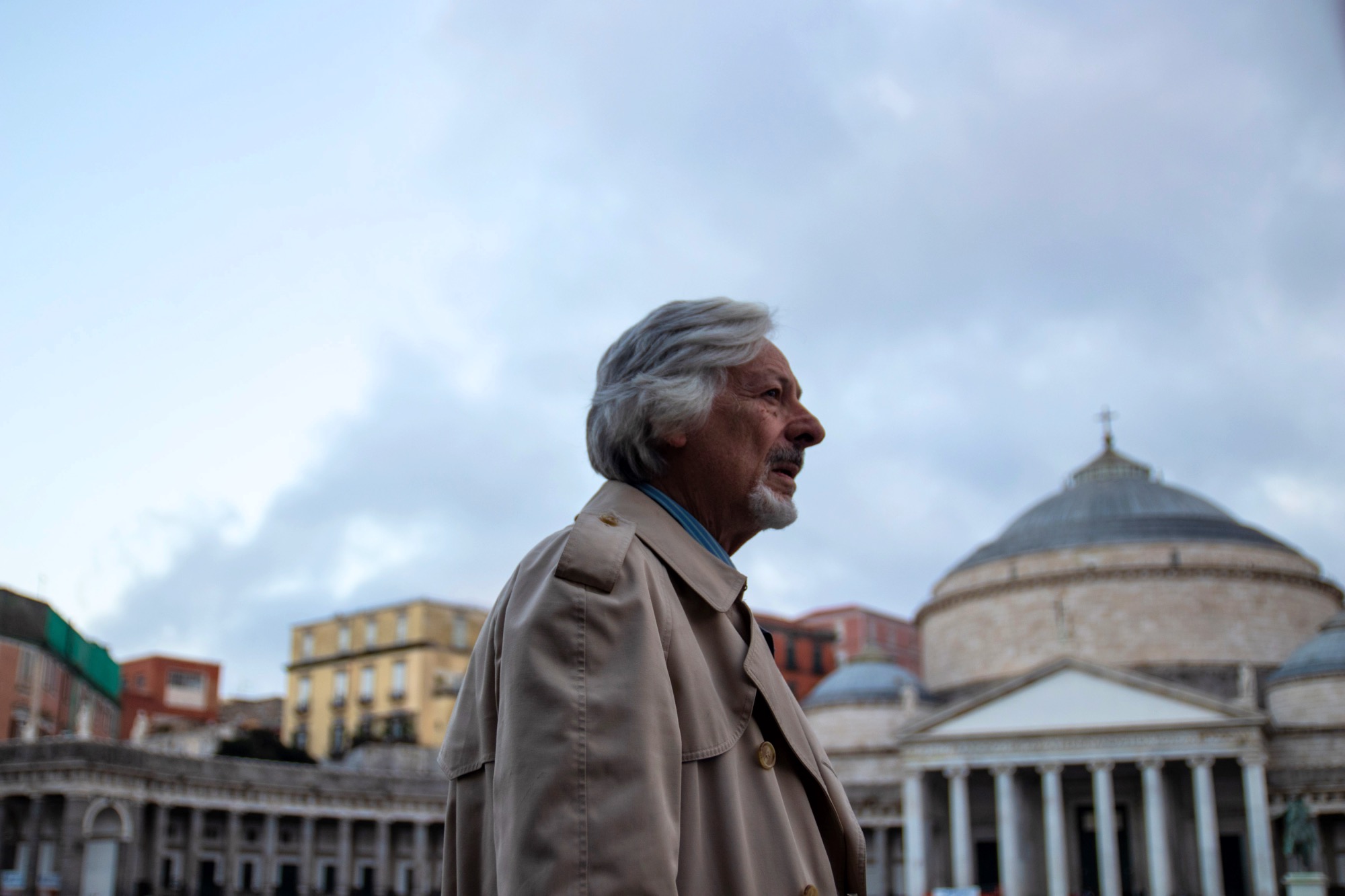
- Film
“That Place in Time” – An Italian Film About Dementia Opens Today, on World Alzheimer Day
Screened out of competition at the Venice Film Festival, Quel posto nel tempo (That Place in Time), by Italian director Giuseppe Alessio Nuzzo, is the most notable of a slate of films exploring the subject of Alzheimer’s disease and dementia. The film will be released theatrically in Italy on September 21, 2022, World Alzheimer’s Day.
This film is a sort of bookend to the Venice film Monica, Andrea Pallaoro’s film in which Patricia Clarkson plays a dying mother afflicted by dementia. These two follow a series of films focusing on the subject, including Florian Zeller’s The Father (2020) with Anthony Hopkins, Still Alice (2015) with Julianne Moore, and The Iron Lady (2011) with Meryl Streep as Margaret Thatcher.
In Quel posto nel tempo, Mario (played by veteran Italian actor Leo Gullotta), a retired once well-known orchestra conductor, spends his days in a luxury resort in southern England. He suffers from Alzheimer’s and is often hunted by sudden memories, which he immediately forgets. He lives in fear that the disease may cancel his past which is filled with fame and success. He mainly fears the erasure of the great loves of his life, his wife Amelia (Giovanna Rei), who had passed away years earlier, and his daughter Michela (Beatrice Arnera). Reality gets mixed up and confused with flashbacks and imaginary visions, as the audience sees the horror of this cruel disease through Mario’s eyes.
The HFPA talked about the film with its lead actress and co-producer Giovanna Rei, and director Nuzzo (co-writer with Eitan Pitigliani) in Rome, following a press screening at the Casa del Cinema, a few days after its debut in Venice.
“During the Covid lockdown, I read Florian Zeller’s play The Father,” said Rei. “Then I watched the film based upon it and was totally fascinated by the subject and the sensibility in addressing this problem that afflicts so many people in the world. Right after that, Nuzzo came to me with this idea. It’s a different story and yet I was surprised by the synchronicity of the events.”
Quel posto nel tempo is also narrated from the vantage point of the person afflicted by Alzheimer’s, and it was made with the help of the Italian government’s and film commission’s funds as a way to raise awareness of this widespread mental health issue, still untreatable despite decades of neurological research. “We still don’t have a cure for Alzheimer’s,” Rei says. “But the diagnostics improved a lot in recent years and we are finding ways to at least slow the decaying process. It’s a cruel disease, for the person afflicted by it, of course, and also for the people around him or her. It’s painful not to be recognized by your own parent, and this pain leads not only to discomfort but even hints of resentment mixed with frustration. Alzheimer’s is a great divider inside a family’s life.”
Nuzzo describes the genesis of the project. “The film is based on a short film I made about seven years ago about the relationship between my mother and her own mother,” he says. “My grandma had Alzheimer’s, and my mother dedicated all her life as a caregiver to her mother’s last years. I remember that my mother was shy to use the term Alzheimer’s. She used to say that my grandmother was just very old. I realized that talking about it was still taboo and that there is a lot of disinformation around it. I believe the best way to find a cure for Alzheimer’s is first and foremost being able to talk openly about it.”
For the film, Nuzzo did research at the University of Padova’s neurological department to better understand what it means to lose memories and its non reversibility. Alzheimer’s is a degenerative disease that has no cure. Nuzzo did a lot of prep work with the actors (mainly with Gullotta) and studied the research of musical resonance at the Conservatory in Rovigo since the film’s story hinges on music and the importance of sound.
“I’m positive that the scientific world, as it demonstrated with Covid, can and will unite to battle Alzheimer’s,” says Nuzzo. “It’s the disease of this millennium, we cannot underestimate it. It’s a disease that’s also very expensive and taxing on the health system. It needs all our attention and efforts. Let’s always remember life is all about memory.